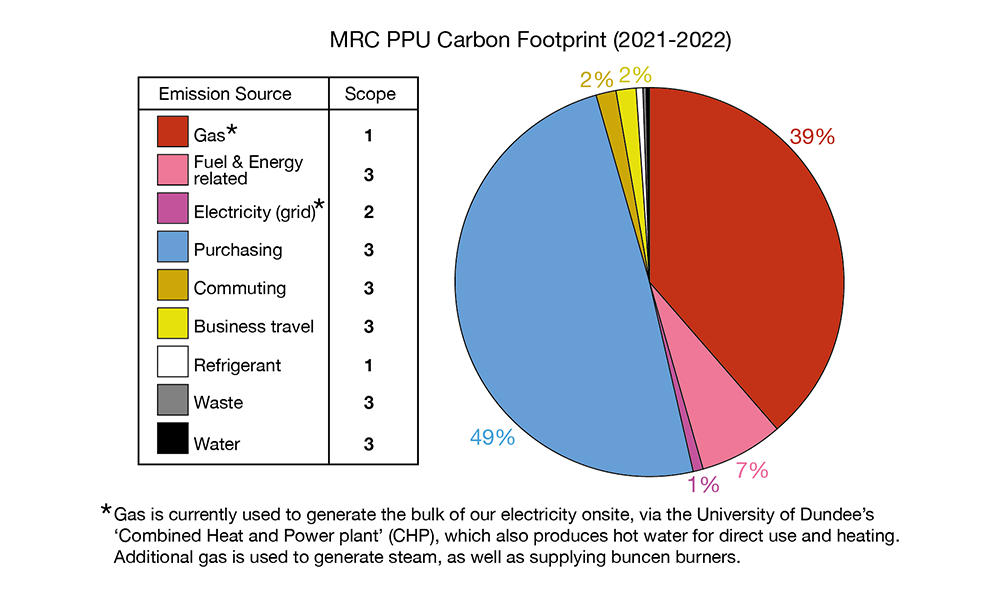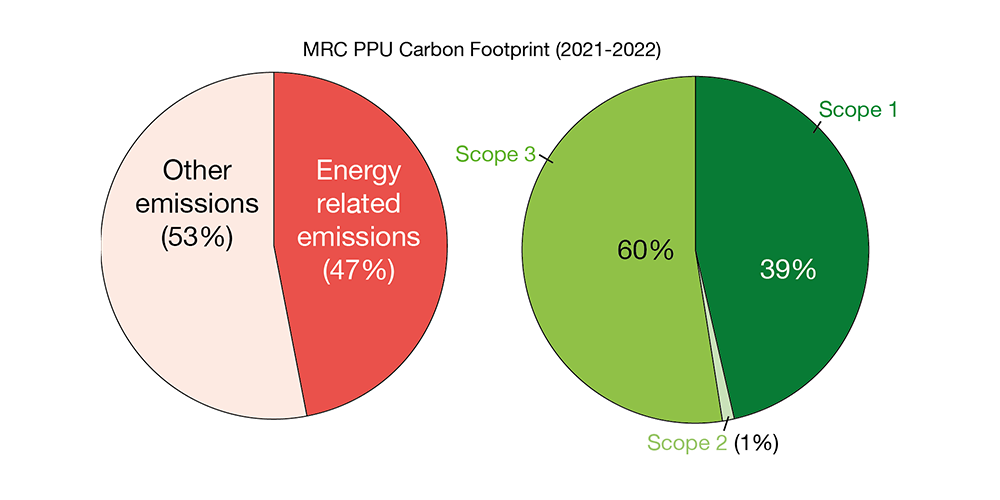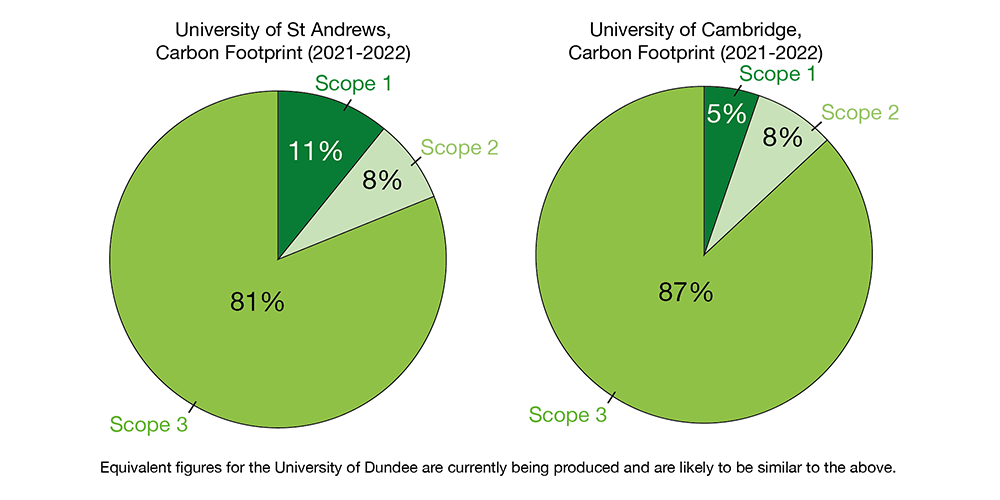Sustainability and climate action
We believe that scientists have a special responsibility to help humanity respond to the global crises that have been caused by anthropogenic climate change and the associated loss of biodiversity. Urgent action is required during the present decade, to reduce greenhouse gas emissions and develop a more sustainable approach to human life on Earth. We believe that scientists should be at the heart of such efforts, providing leadership at a time of great uncertainty for humankind, and helping our universities to develop ambitious sustainability plans. Such plans should follow the principles of the Science-based target initiative, committing each institution to a roadmap for emissions reductions that represents its share of the global action that is required to limit global warming to 1.5°C relative to pre-industrial levels.
We recognise that scientists have a duty to understand and mitigate the environmental impact of their research. As biomedical scientists who seek to improve human well-being through our work, we know that our research involves the intense usage of energy and generates significant waste plastics. Our Unit seeks to develop more sustainable approaches to biological research, in collaboration with colleagues in many other centres around the world.
Carbon footprint analysis and science-based targets for emissions reduction
With funding from the MRC, we are collaborating with the MRC Mitochondrial Biology Unit in Cambridge, and the MRC Human Genetics Unit in Edinburgh, to help improve the sustainability of research in MRC Units. We have analysed the carbon footprint of our three Units, as exemplars of such research centres around the UK. This work has been led by Professor Karim Labib, who acts as ‘Head of Sustainability and Climate Action’ for the School of Life Sciences, together with Elisa Garcia-Wilson who is the MRC PPU Sustainability Officer. Following the Greenhouse Gas Protocol, our carbon emissions are grouped into three categories called ‘scopes’. Of these, Scope 1 and Scope 2 emissions are associated with the usage and production of the energy that we require. In contrast, Scope 3 emissions are derived from multiple sources including our ‘supply chain’ (purchasing and transportation of all the various products and services that are required for our work), emissions associated with transmission of the energy that we use, our business travel and commuting.

Our analysis, which likely reflects the situation for biomedical departments in many other establishments, shows that energy usage is a very significant feature of the carbon footprint of our MRC Units (Scope 1 + Scope 2 + energy-related Scope 3 = 47% total emissions for MRC PPU). The energy rich nature of biomedical departments highlights the urgent need to replace fossil fuels with more renewable sources of energy in our research centres, at the same time as reducing our energy usage as much as possible.

Energy usage represents a much smaller proportion of the total emissions of entire Universities (and most other institutions), for which the carbon footprint is dominated by Scope 3 emissions that come from the supply chain. Nevertheless, it is still critically and urgently important for universities and other organisations to move away from fossil fuels to renewable energy sources, if the climate crisis is to be averted. We need to remember that the Scope 3 emissions from our supply chain represent somebody else’s Scope 1 and Scope 2 emissions from energy usage. The world will only be able to face the challenges of the climate and biodiversity crises if all local communities and organisations take responsibility for their own actions. We are committed to reducing our energy usage wherever possible, and to working with our universities to move away from fossil fuel usage, as part of a science-based plan that is compatible with UKRI’s ‘NetZero 2040’ commitment.

MRC PPU Green Team
We believe that sustainable research can only be delivered through active engagement with our staff and students. The MRC PPU Green Team contains representatives of all our labs and service teams, and its actions are guided by the ‘Laboratory Efficiency Assessment Framework’ (LEAF) that was developed by University College London. We recently achieved the ‘Bronze’ level of the LEAF programme and are committed to meeting the criteria for Silver and Gold over the coming year, whilst recognising that the value of such ‘awards’ is simply that they should inspire us to further action to reduce our considerable environmental impact. One highlight of this work is a Green Travel Fund to reduce emissions from business travel, by funding the extra costs that are associated with travelling by train rather than by plane. Other measures include an experiment to quantify the impact of changing freezers from -80°C to -70°C (revealing a 30% energy saving) and the promotion of sustainability awareness in the induction of all new staff.
Reducing plastic waste
We are carrying out a series of experiments to establish how to improve plastic recycling in MRC Units and in their host departments. One highlight is a collaboration with the renewable energy company ‘ReNew ELP’, to determine whether polyethylene and polypropylene waste from laboratories could be processed via a new approach called ‘hydrothermal plastic recycling’, rather than going to landfill or incineration. Another involves a collaboration with local craft companies to convert waste laboratory plastics into artistic household items.

